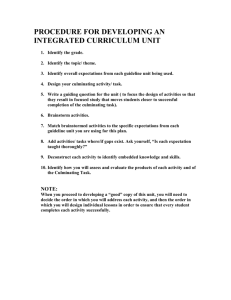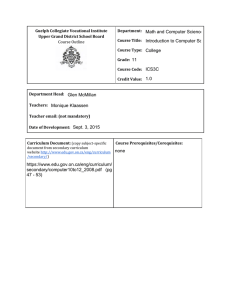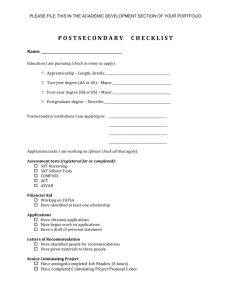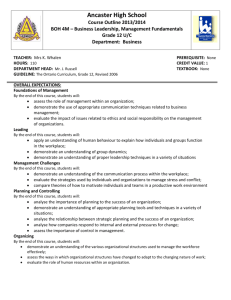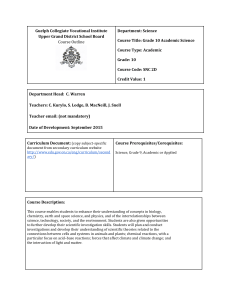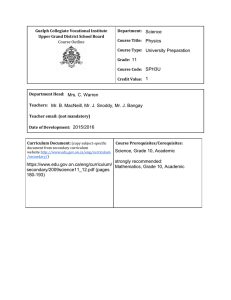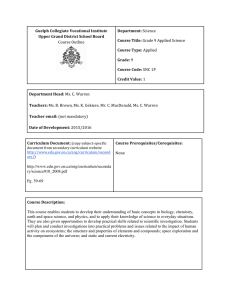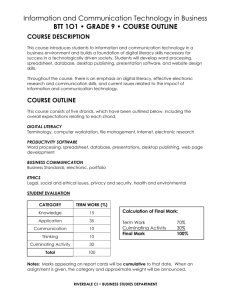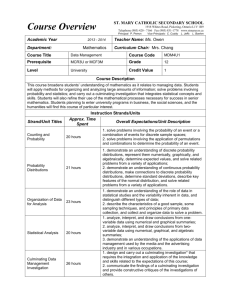Guelph Collegiate Vocational Institute Department: Science Upper Grand District School Board
advertisement
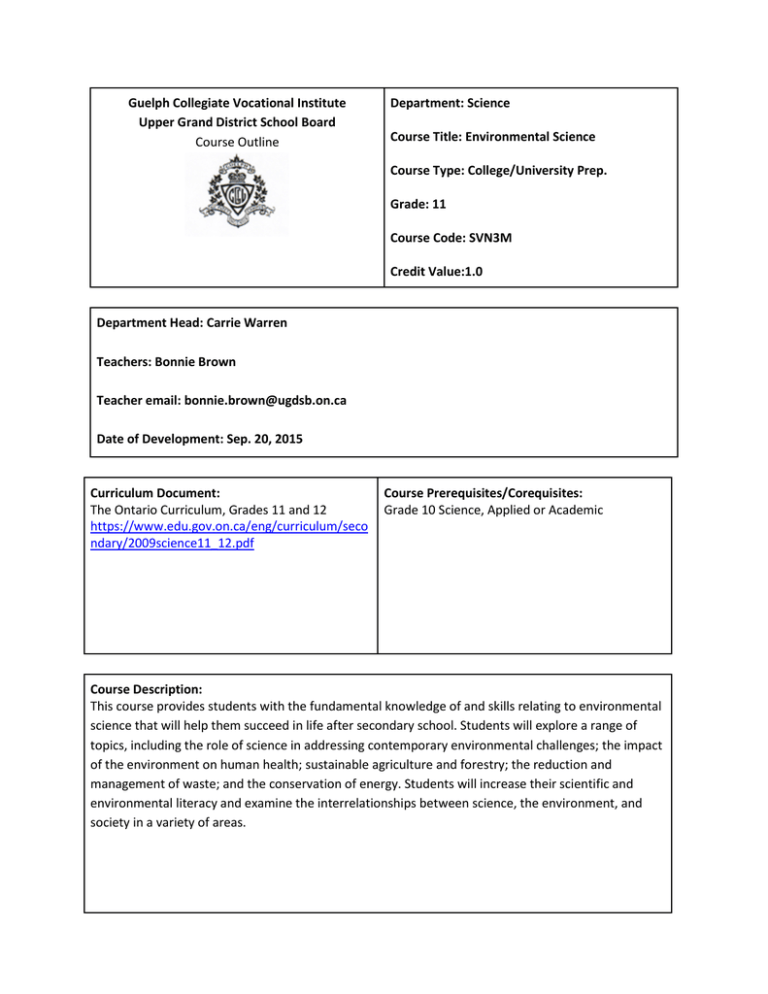
Guelph Collegiate Vocational Institute Upper Grand District School Board Course Outline Department: Science Course Title: Environmental Science Course Type: College/University Prep. Grade: 11 Course Code: SVN3M Credit Value:1.0 Department Head: Carrie Warren Teachers: Bonnie Brown Teacher email: bonnie.brown@ugdsb.on.ca Date of Development: Sep. 20, 2015 Curriculum Document: The Ontario Curriculum, Grades 11 and 12 https://www.edu.gov.on.ca/eng/curriculum/seco ndary/2009science11_12.pdf Course Prerequisites/Corequisites: Grade 10 Science, Applied or Academic Course Description: This course provides students with the fundamental knowledge of and skills relating to environmental science that will help them succeed in life after secondary school. Students will explore a range of topics, including the role of science in addressing contemporary environmental challenges; the impact of the environment on human health; sustainable agriculture and forestry; the reduction and management of waste; and the conservation of energy. Students will increase their scientific and environmental literacy and examine the interrelationships between science, the environment, and society in a variety of areas. Term Work (70% of the final mark) Unit Title, Big Ideas, and Unit Culminating Tasks Unit 1: Scientific Solutions to Contemporary Environmental Challenges Big Ideas: Current environmental issues are complex, and may involve conflicting interests or ideas. Scientific knowledge enables people to make informed decisions about effective ways to address environmental challenges. Unit Culminating Tasks: Project Summative Quiz Unit 2: Sustainable Agriculture and Forestry Big Ideas: Modern agricultural and forestry practices can have positive and negative consequences for the economy, human health, and the sustainability of ecosystems, both local and global. Unit Culminating Tasks: Case Study Project Unit Test Unit 3: Reducing and Managing Waste Big Ideas: Well-thought-out waste management plans help to sustain ecosystems, locally and globally. By making informed choices, consumers can reduce the amount or alter the nature of the waste they produce. Unit Culminating Tasks: Waste Audit Report Unit Test Unit 4: Conservation of Energy Big Ideas: The impact of energy production and consumption on environmental sustainability depends on which resources and energy production methods are used. Unit Culminating Tasks: Project Unit Test Unit 5: Human Health and the Environment Big Ideas: Environmental factors can have negative effects on human health. It is possible to minimize some of the negative health effects of environmental factors by making informed lifestyle choices and taking other precautions. Unit Culminating Tasks: Project Unit Test Culminating Tasks/Exams (30% or the final mark) Course Culminating Task/Exams and Description Final Exam (15%) Case Study (5%) Individual Research Project (10%) Based on the range of students’ learning needs, a selection from the strategies listed below may be utilized. Refer to list of teaching and assessment strategies. Teaching Strategies: class discussion, teacher demonstrations, simulations, paired or small group lab, video presentations, field trips, guest speakers, paired or small group directed lab activities, small group discussion, use of graphic organizers, informal lab reports, PEOE investigations, research on STSE and careers, news article review, case studies Assessment and evaluation strategies: Case studies, ongoing project work, written and/or oral presentations, individual assignments including lab and field work, teacher conferences, peer assessment, self-assessment, unit tests Textbooks/Learning Resource Materials (align with Policy 603) Environmental Science, A Canadian Perspective McGraw-Hill Ryerson, 2013 Fees for Learning Materials/Activities Learning Materials/Activities Cost Field Trips may have costs Please refer to the GCVI Student Handbook for our school policies on: ● academic integrity ● late and missed assignments
